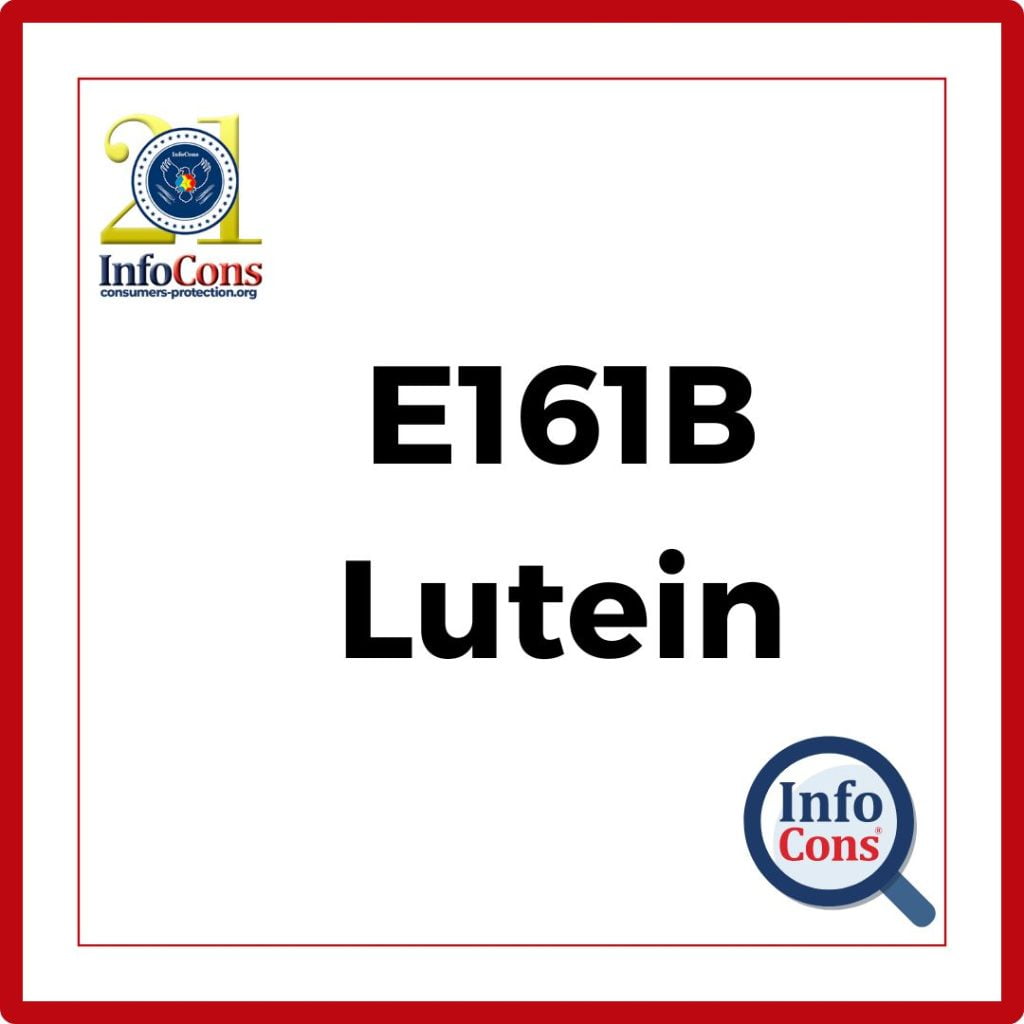What is the Food Additive E161B?
E161B, known as lutein, is a natural food colorant belonging to the carotenoid category.
Lutein is a type of carotenoid that is predominantly found in green leafy vegetables, egg yolks, and certain fruits. Recognized for its pigment ranging from yellow to orange, lutein is not only an important natural colorant in the food industry but also plays a crucial role in eye health.
Lutein mainly comes from:
- Green Leafy Vegetables: Spinach, kale, and broccoli are rich in lutein. These vegetables contain high concentrations of lutein.
- Egg Yolk: Egg yolk is an important source of animal-derived lutein. The yellow color of the yolk is due to the presence of lutein and other carotenoids.
- Fruits: Certain fruits, such as kiwi, grapes, and oranges, contain moderate amounts of lutein.
- Marigold Flowers: Industrially, lutein is often extracted from marigold flowers, which are specially cultivated for this purpose.
Read also – E160E – Beta-Apo-8′-Carotenal
What is the Recommended Daily Dose?
Lutein, E161B, is generally recognized as a safe additive by regulatory bodies such as the U.S. Food and Drug Administration (FDA) and the European Food Safety Authority (EFSA). In the European Union, it is approved for use as a food additive under specific conditions.
Considering the absence of chronic toxicity/carcinogenicity studies, EFSA has established a maximum allowable dose for E161B of 1 mg/kg body weight per day.
In Which Products is the E161B Additive Found?
Given the lack of a multi-generation reproductive toxicity study and chronic toxicity/carcinogenicity studies, in the food industry, E161B is used as a natural colorant in a variety of foods and beverages, including dairy products, baked goods, and drinks. It is often added to enhance the visual appeal of these products.
- Dietary Supplements: Given its health benefits, lutein is a common ingredient in dietary supplements aimed at improving eye health and overall well-being. It is available in various forms, such as capsules, tablets, and gels.
- Cosmetics: In the cosmetics industry, lutein is used in formulations designed to protect the skin from UV rays and improve skin health. It is included in creams, lotions, and serums for its antioxidant properties.
- Animal Feed: Lutein is also added to poultry feed to enhance the yellow color of egg yolks and chicken skin, which are attributes preferred by consumers.
Read also – E160C – Capsanthin (Paprika)
Contraindications and Risks
There are no significant health risks associated with the consumption of E161B at the levels commonly found in foods and supplements.
However, excessive intake of supplements containing lutein can lead to skin discoloration, known as carotenodermia, which is a harmless condition where the skin turns yellow-orange.
Read also – How Often Should We Consume Fruits and Vegetables ?
Lutein, or E161B, is a carotenoid with a wide range of applications and benefits, particularly in promoting eye health and protecting the skin.
Its natural origin and significant health benefits make it a valuable component in the food, supplement, and cosmetics industries.
The extraction and processing of lutein, especially from marigold flowers, can involve significant costs and require a stable supply chain. Companies need to evaluate these factors to ensure a cost-effective integration of lutein into their products while maintaining the quality of this additive.
Look for products with a clean label or that use natural additives. By installing the InfoCons app and scanning the barcodes of food products, consumers can find out the number and type of food additives used.
Author – Cosmina Nițu
Master in Nutrition – Infant and new born nutrition
Sources:
https://www.efsa.europa.eu/ – The European Food Safety Authority
https://www.sciencedirect.com/ – Science Direct
InfoCons – European Organization for Consumers Protection and Promotion of Programs and Strategies , a full member of the World Organization Consumers International, founding member of the Federation of Consumer Associations, and member of ANEC.
